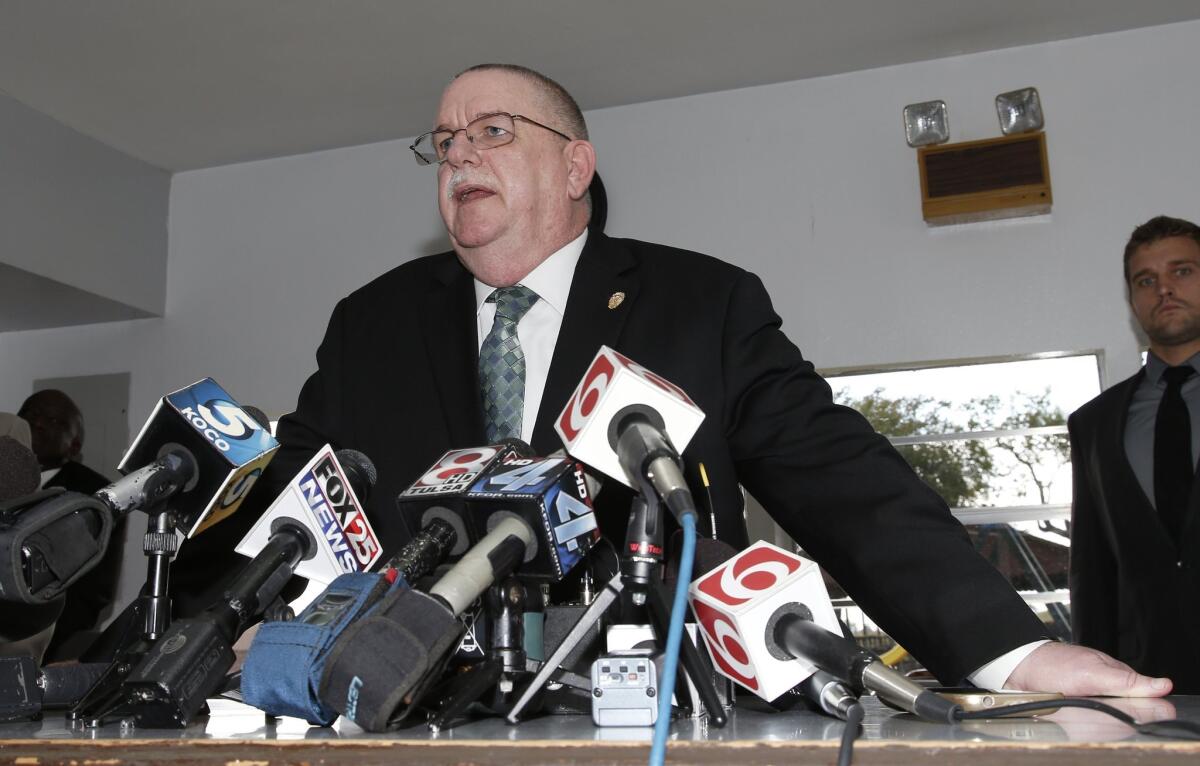Oklahoma execution of Richard Glossip delayed after drug snafu

Oklahoma Department of Corrections Director Robert Patton informs reporters Wednesday of the last-minute stay of execution granted to Richard Glossip. The execution is now set for Nov. 6.
- Share via
The execution of Richard Glossip, one of the nation’s most famous residents of death row, was delayed for the second time when Oklahoma gave him a last-minute reprieve after questions arose over the mix of drugs to be used.
For the second time in as many weeks, Oklahoma on Wednesday ordered a 37-day stay of execution. Officials said the execution had to be delayed til Nov. 6 because Oklahoma was preparing to use the wrong drug, potassium acetate, rather than potassium chloride as required.
“I’m just standing there in just my boxers,” Glossip, who claims he’s innocent, told reporters in a telephone interview from the Oklahoma State Penitentiary. “They wouldn’t tell me anything. Finally someone came up and said I got a stay.”
The battle over which drugs and in what dosage can be used in carrying out the death penalty has been fiercely fought in recent years after a spate of botched executions, including that of Clayton Lockett in April 2014 in Oklahoma. Lockett writhed in pain and struggled against his restraints after an intravenous line was improperly placed.
It took Lockett took 43 minutes to die.
Most executions are based on administering three drugs. Oklahoma’s protocol calls for the use of the sedative midazolam at the start of an execution. It is followed by vecuronium bromide, which halts an inmate’s breathing, and potassium chloride, which stops the heart.
Glossip was the lead plaintiff in a key case that argued that midazolam wouldn’t adequately render an inmate unconscious before the other drugs were administered. The U.S. Supreme Court voted, 5-4, in June that the sedative’s use was constitutional.
Glossip was scheduled to be executed on Sept. 16 for ordering the murder of Barry Van Treese in 1997. But the Oklahoma Court of Criminal Appeals granted a rare two-week reprieve to review his claims of new evidence. Gov. Mary Fallin ordered Wednesday’s last-minute delay.
Glossip has long argued that he was framed by Justin Sneed, a motel handyman who admitted to fatally beating Van Treese with a baseball bat, but said he did so because Glossip promised him $10,000. Sneed, who is serving a life sentence, was the state’s key witness against Glossip in two trials.
Glossip’s lawyers maintain he is innocent.
Follow @latimesmuskal for national news.
More to Read
Sign up for Essential California
The most important California stories and recommendations in your inbox every morning.
You may occasionally receive promotional content from the Los Angeles Times.














